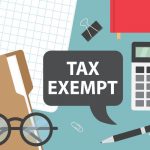Educational organizations that qualify for tax-exempt status under the Internal Revenue Code (IRC) Section 501(c)(3) include those that are charitable in that they “advance education.” According to Treas. Reg. 1.501 (c)(3) – 1(d)(3)(i), “education” is:
- The instruction and training of the individual to improve or develop their capabilities.
- The instruction of the public on subjects useful to the individual and beneficial to the community.
Like all charitable organizations, educational organizations must meet specific requirements to obtain and maintain tax-exempt status. These rules can be complicated and often require the advice of legal counsel to ensure compliance with them. If you have questions about your educational organization and tax-exempt status under the Internal Revenue Code, contact the California Center for Nonprofit Law at (949) 892-1221 today for legal advice and guidance.
Understanding Educational Organizations
Like other 501(c)(3) organizations, educational organizations must primarily advance their exempt purposes, i.e., to advance education. If more than an insubstantial amount of their activities furthers a non-exempt purpose, their tax-exempt status may be in jeopardy.
Educational organizations serve a larger purpose than simply providing educational instruction. Instead, they may engage in other education-related activities, such as providing scholarships or advancing a particular position or viewpoint in public dissemination, such as through literature or the arts. In some cases, these disseminations may be commercial endeavors, which is permissible if the organization does not have the primary purpose of conducting an unrelated trade or business. Some common examples of educational organizations and their activities include:
- Presentations of public discussion, lectures, and panels;
- Provision of virtual instructional courses;
- Museums, zoos, planetariums, symphonies, and other arts organizations;
- University bookstores and other organizations with exclusively school-related functions;
- Alumni organizations;
- National fraternity foundations (but not fraternities or sororities, which typically are organized for primarily recreational purposes);
- Travel tours of educational activities, so long as they have a substantial relationship to the organization’s exempt purposes;
- Publications, so long as they are educational rather than commercial;
- Athletic education, if the focus is on teaching and learning instead of recreation and competition;
- Hobby clubs, to the extent that they focus on scholarly rather than social activities; and
- Educational scholarships, as long as they serve educational and charitable rather than private interests.
Distinguishing Between Education and Propaganda: Understanding the IRS Methodology Test
The IRS has developed a methodology test to distinguish whether materials produced by an organization are educational or merely propaganda. The results of this test indicate whether an organization advances education as an exempt charitable purpose within the meaning of Section 501(c)(3).
The methodology test looks at the methods by which the organization disseminates its viewpoint rather than the substance of the viewpoint. Characteristics of educational viewpoints provide factual foundations for the viewpoints advocated. These materials also provide development from relevant facts that would materially help the viewer or listener through an educational or learning process.
Conversely, the following characteristics are indicative of propaganda:
- The presentation of viewpoints unsupported by facts represents a significant portion of the organization’s communications;
- The facts that claim to support the viewpoints appear distorted;
- The organization’s presentations substantially use inflammatory and disparaging terms and express conclusions based more on strong emotions than on objective evaluations; or
- The organization’s approach in presentations isn’t aimed at developing the intended audience or reader’s understanding because it doesn’t consider their background or training on the subject.
Nonetheless, in exceptional circumstances, an organization may qualify as an educational organization, even if one of the above characteristics indicating propaganda is present in an organization’s materials. The IRS will review the organization’s methodologies as a whole, not just a single methodology that may have a characteristic that points to propaganda.
Call the California Center for Nonprofit Law Today
If your educational organization needs legal advice or assistance, we are here to help. Contact an experienced §501(c)(3) lawyer today. Call the California Center for Nonprofit Law offices at (949) 892-1221, email us at info@npolawyers.com, or contact us online for more information today. We offer a wealth of experience handling the unique legal issues that nonprofit organizations routinely face.






